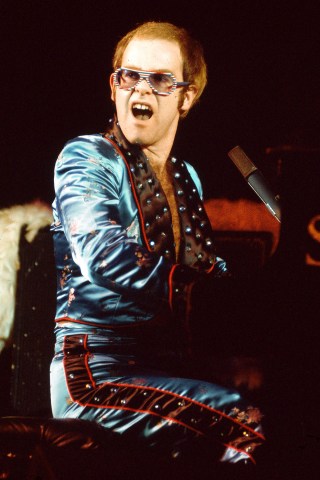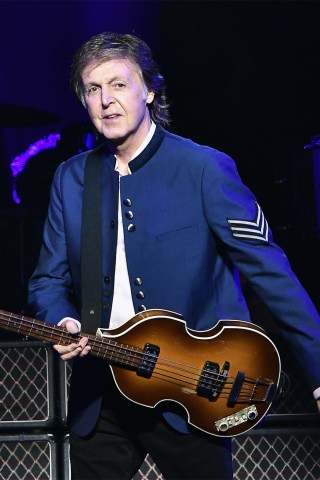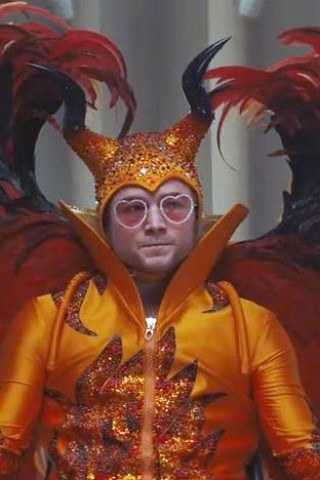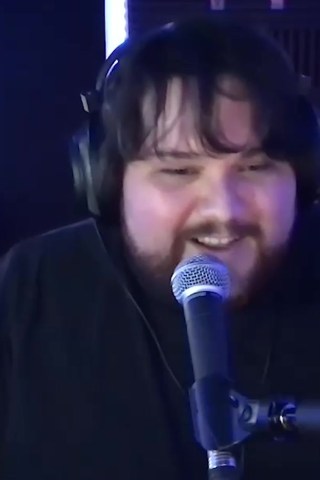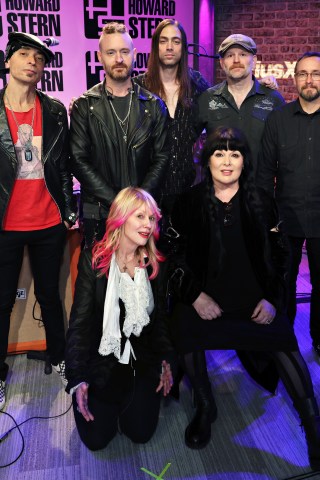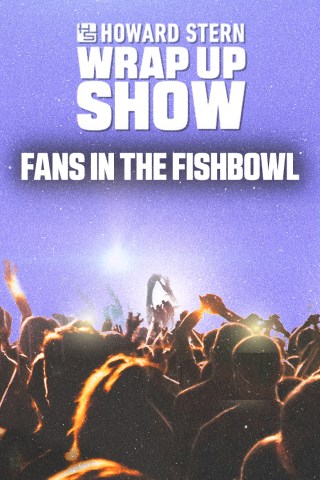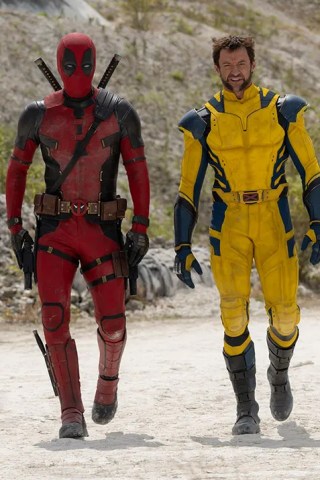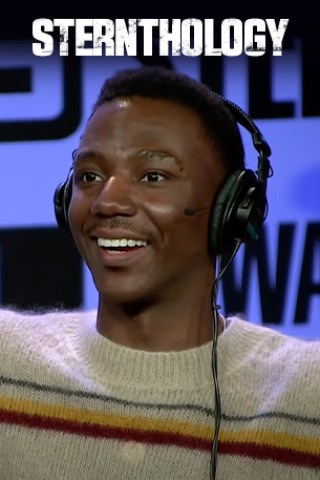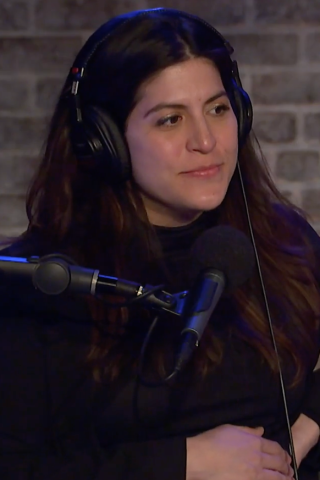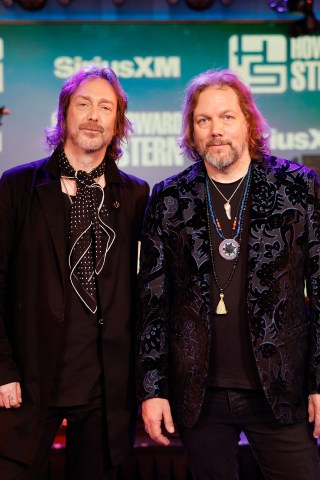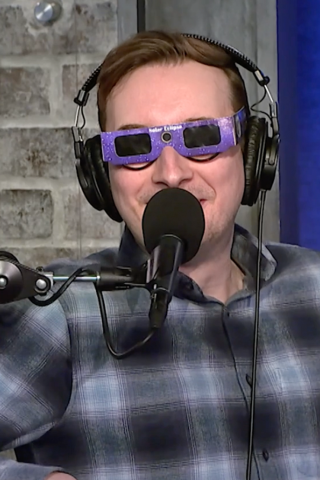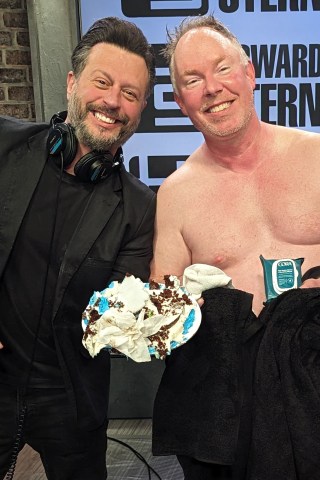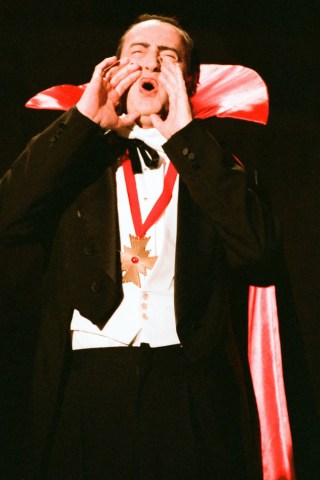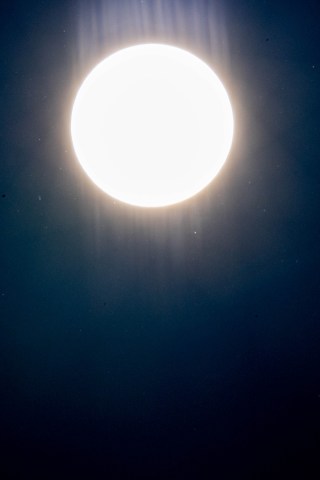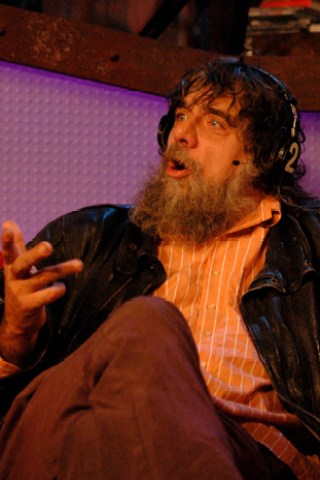Sir Elton John on When He’ll Retire, Why Bernie Taupin Is His Soulmate, and What He Imagines His Friend John Lennon Would Be Doing Today
Legendary musician sits with Howard following the release of his career-spanning box set “Jewel Box”
November 18, 2020Sir Elton John, one of rock ‘n’ roll’s true living legends, made his much-anticipated Stern Show return Wednesday morning, sitting down at his piano for an epic interview following the release of his critically acclaimed, eight-disc collection “Jewel Box.” His career-spanning conversation with Howard—peppered with several moments of live piano magic for good measure—touched upon everything from the audition which unexpectedly connected him with lifelong writing partner Bernie Taupin to how he came to share the stage with icons like the Rolling Stones and John Lennon. An open book for 90-straight minutes, Sir Elton also spoke candidly about his “friendly rivalry” with Rod Stewart, why he once believed masturbation would blind him, and the exact moment he plans to shut the lid on his piano and hang up his ornate stage costumes for good.
“The day I start not singing well and not playing well is the day I’m going to give up. I don’t want to go out being mediocre. I want to go out as good as I am or even better than I was,” Sir Elton told Howard, adding, “I think I’m singing better now at 73 than I have ever done in my life and the moment that starts to crack, I’m off. I’m truly serious about that.”
Made in England
Born Reginald Dwight, music was an integral part of John’s life from an early age. “I grew up in a house with a piano in it … Before I started learning classic music, I could play things by ear. The first thing I ever played really was [Émile Waldteufel’s] ‘The Skaters’ Waltz,’” he said, before treating Howard and co-host Robin Quivers to several bars of the classic German composition.
Young Reginald was a prodigy. At 11, he started training at London’s Royal Academy. But his heart laid elsewhere. “I loved classic music, but I just didn’t have the passion for it,” he explained.
It was the sound, style, and flair of musicians like Elvis Presley, Jerry Lee Lewis, and Little Richard who truly opened his eyes. “I had so many influences when I grew up before Elvis, but then when Elvis came along it was like an atom bomb going off,” Sir Elton told Howard.
“[They] kind of attacked the piano like lunatics—like criminals, basically. They stood up on it. They jumped on it,” he continued. “So, I attacked the piano like they did, and I jumped on it, and I dressed flamboyantly because if you’re going to watch me for two hours sitting at a plank you’ve got to be entertained.”
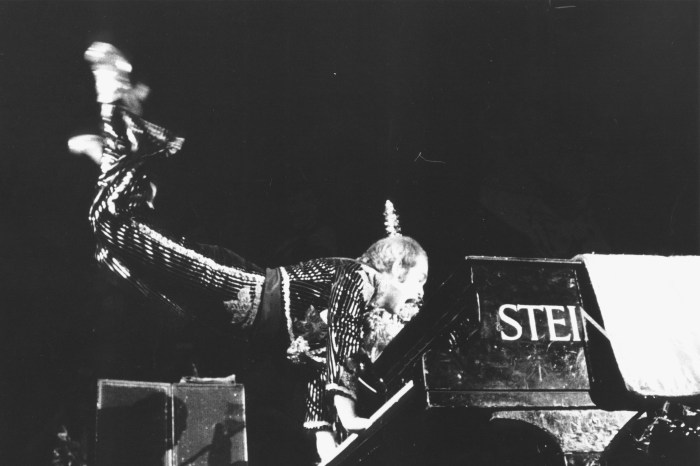 Elton John performing in 1974
Photo: WireImage
Elton John performing in 1974
Photo: WireImage
Howard thought his guest’s music spoke for itself. “You needed none of that. Seeing you play in concert was mind-blowing,” he said. “It was enough.”
“But it wouldn’t have been as much fun,” Elton laughed. “I took it probably too far, but I couldn’t care less because I was just having so much fun.”
“People used to come and hear me play ‘Your Song’—and it’s a lovely, beautiful ballad—and I’d be sitting there dressed as a giant chicken, and I didn’t give a monkey’s because the songs were there,” he continued. “It was important to me to give the audience something else as well, to give them part of my personality that had always been suppressed.”
Buh-buh-buh Bernie and the Lyrics
Elton gave contemporary music a shot after leaving the Royal Academy. He started off as a player in the self-described “average” soul band, but the trajectory of his career really changed in 1967 after he auditioned for Liberty records A&R man Ray Williams.
On Wednesday, he performed his Jim Reeves audition song once again for Howard and his listeners. “That’s what I played,” he said. “I was looking for a record contract or a writing contract and obviously he thought, ‘Who needs another Jim Reeves?’ And there was a pile of lyrics on the table … He just picked an envelope, gave it to me, I opened it on the train, and there it was Bernie [Taupin].”
“I could have been writing with Fred Smudge and it wouldn’t have been Bernie, so thank god for Ray Williams,” he added.
“When you read Bernie’s lyrics … you knew right away?” Howard asked.
“Yep, I opened the envelope on the train going back home and thought, ‘Oh, these were good’ … I thought, ‘God, I could write to these lyrics. They were very simple but I loved them.’ I went home and I did write them,” Elton responded. “I’m hopeless at writing a song from scratch … forget it, let’s write with Bernie instead.”
 Bernie Taupin with Elton John in 1971
Photo: Getty Images
Bernie Taupin with Elton John in 1971
Photo: Getty Images
Now, over a half century later, he and Taupin are still going strong. He told Howard it wasn’t until after watching “Rocketman,” his own recent biopic, that he realized Bernie was the glue holding him together all these years. “I’m so lucky to have that kind of relationship with someone. You know, you don’t have to be around someone all the time to be best friends. We’re best friends and the distance has kept us close,” he said.
“What a magnificent relationship, “Howard told him.
“Bernie was the brother I never had, he was the soulmate I never had, he was my first big mate I could hang around with,” Elton said. “Yeah, he is my soulmate.”
Considering Elton and Bernie have collaborated on more hits than just about any duo in history, Howard was curious how their songwriting process worked.
“He usually gives me a bunch of lyrics at once and I go and look at the titles and think, ‘Hmm, I’m in the mood for that title,” he responded, explaining the name ‘Tiny Dancer’ quickly made him conjure up a California sound while “Philadelphia Freedom” seemed like an obvious choice for a Philadelphia-style soul record.
Elton said the process of writing with Bernie hasn’t gotten old. “It’s as exciting now to get a lyric from him because I never know what the movie is going to be,” he explained. “I have 20 lyrics waiting to be written at the moment, I’m just not in the mood to write it.”
Despite his love for music, Sir Elton never plays piano at home unless his boys ask. “Why would I want to play?” he told Howard. “I play like 120 shows a year … If you’re in a bakery and you work five days, six days a week, what do you do? Come home and bake an apple pie straight away? No, you do not.”
Saturday Night’s Alright for Charades
Sir Elton celebrated several musical influences Wednesday morning, including Fats Domino, Liberace, Andy Williams, Perry Cuomo, and Leon Russell.
“He looked like this incredible alien with this long grey hair and this top hat, and he looked really kind of spooky and intimidating,” Elton said of Russell before doing his best impression of the Rock and Roll Hall of Famer on the piano.
“Everything I loved about music, he molded it into one style—the gospel, the country, the soul, the blues, and he had it all,” he continued “When I heard Leon, that’s the way I wanted to play.”
John’s first stateside concerts were in 1970 at the Troubadour in Los Angeles. During his second night performing, he noticed Russell in the audience. “I’m going, ‘Oh shit’ … It’s Leon Russell,” Sir Elton recalled. “I froze for a nanosecond and I thought if he comes backstage afterward he’s going to tie me to a chair and say, ‘No, this is not how to play the fucking piano, this is how to play the piano,’ and I was terrified.”
But their first meeting went well. “He couldn’t have been sweeter,” Sir Elton said, explaining Russell also helped cure his hoarse voice by recommending he gargle before shows with honey, vinegar, and hot water. “I still do that to this very day,” he told Howard.
Russell wasn’t the only artist who treated him kindly as an up-and-comer, either. He also had fond memories of hanging out with legends like Neil Young, Bob Dylan, and Brian Wilson. John recalled going to Wilson’s house to get an early preview of the Beach Boy’s seminal album “Good Vibrations.”
“He was strange. I’d never experienced anything like that in my life … but he was kind and he was lovely and he always has been to me,” John said, explaining the eccentric musician surprised him at the door with a manic cover of “Your Song” and kept a literal sandbox in his living room.
He compared the bizarreness of that night to the time he played charades at Neil Diamond’s house and got partnered up with Dylan, who apparently wasn’t any good at the game. “I’m very competitive and Bob, the greatest lyricist in the world … can throw three words together that no one else can but can’t do ‘sounds like’ and ‘two syllables,’” Sir Elton recalled. “I’m getting fucked off and we’re losing and apparently I threw oranges at him.”
In one story about Neil, meanwhile, he recalled the Godfather of Grunge annoying his neighbors by playing his entire album “Harvest” on the piano. In another, the two got drunk together in Honolulu and did silly covers of each others songs.
“I’ve had so many great times with Neil—again, they’re wonderful moments with people you love and admire and respect,” Elton said. “I’ve been so bloody lucky and I think it’s because, at the end of it all, most musicians come from simple places. We’re all John Lennon.”
The Ballad of John and Elton
Speaking of Lennon, Howard had several questions about his guest’s friendship with the exalted Beatles frontman. In one story, Sir Elton recalled when his and Lennon’s drug-fueled hangout was interrupted by a knock at the door from the artist Andy Warhol, who neither of them wanted to let in.
“He didn’t even get in the hotel room,” Elton told Howard with a laugh. “I was so stoned—you know how paranoid you get on coke—it took me 10 minutes to go to the door where you look through the eyehole, and I mouthed to John, ‘It’s Andy Warhol.’”
“We played dead for about 15 minutes until he went away,” he added.
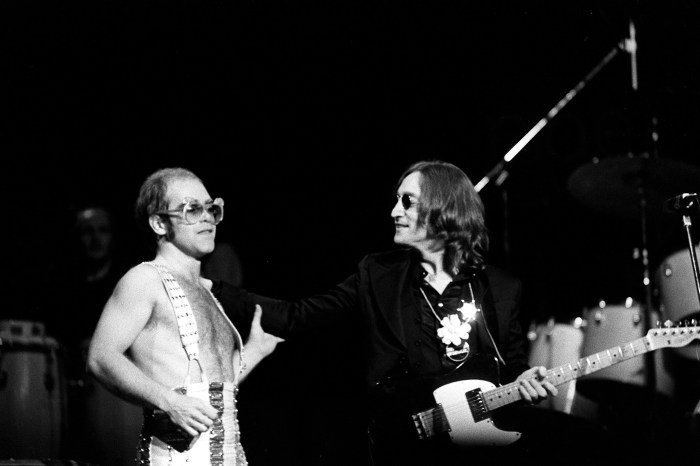 Elton John and John Lennon on stage together
Photo: Steve Morley/Shutterstock
Elton John and John Lennon on stage together
Photo: Steve Morley/Shutterstock
Hotel room shenanigans aside, his favorite memories with Lennon involved making music. As payment for singing and playing on Lennon’s song “Whatever Gets You Thru the Night,” Lennon agreed to perform with Elton in 1974 at Madison Square Garden. “It was probably the greatest night of my professional career because I remember how the audience reacted because he hadn’t been on stage in New York since Shea Stadium,” he told Howard, explaining the ex-Beatle was so nervous before taking the stage he got physically ill.
“It was kismet, the stars were aligned, and we came on stage, and it was wonderful,” Sir Elton continued, explaining they played three songs including “Lucy in the Sky With Diamonds.” “We all cried when he came on. He came on to the greatest reception, the loudest roar I’ve ever heard at Madison Square Garden … I think it really touched him because it showed him how much New Yorkers loved him.”
Elton said the two were thick as thieves for a couple years until Lennon got back together with Yoko Ono and the couple welcomed their son, Sean Lennon. “Then the tragedy happened and I never really told him how much I loved him—you don’t, do you?” he said. “And I still miss him.”
John wondered what else Lennon would’ve done with his life had it not been taken from him in 1980. “I’m sure John would’ve got the Nobel Peace Prize by now because that was his big thing with Yoko, peace,” he told Howard.
Sorry Seems to Be the Hardest Word
Elton had kind words for all his contemporaries, though he admitted he hasn’t always gotten along perfectly with each of them. When asked about his relationship with David Bowie, he told Howard the two were friends for a while but drifted apart over the years.
“He said a couple mean things about me—he called me rock ‘n’ roll’s ‘token queen’ in Rolling Stone, which hurt me a bit—but we both did the Freddie Mercury concert … and we made up and we were fine,” John said.
Drugs, meanwhile, were at the root of a misunderstanding John once had with his favorite rock band, the Rolling Stones. The guys graciously invited him to share the stage and play piano with them at a concert in Colorado, but he was so high he wore out his welcome.
“Do you have nightmares about that?” Howard asked.
“I do because Keith [Richards] was so pissed,” he told Howard. “Keith gave me this look like, ‘If you don’t get off stage in a minute, I’m going to come over there and slit your throat.’”
John could understand Richards’ animosity. “You can’t overstay. If you’re asked to go on stage for one number and you stay for four, it’s like, ‘No, you’ve over-egged the pudding,’ and I did,” he said.
He also spoke to Howard about his relationship with Rod Stewart which has spanned several decades and included quite a few practical jokes pulled between the two.
“Rod and I have always had this kind of rivalry but it’s always been very friendly and it’s always been funny and I love him to death,” he said, explaining he once had Rod’s promotional blimp shot down as it flew over London.
Though Rod recently threw some insults Elton’s way while on Andy Cohen’s television show “Watch What Happens Live,” Elton told Howard he harbors no ill will and even sent Rod’s assistant an email saying as much. “We’ve had this rivalry for a long time and it’s been very, very funny, and I love him dearly, and if I saw him in the street I’d give him the biggest hug,” he said. “There’s no point in carrying on vendettas in this world. Life’s too short.”
“Honestly, I don’t bare any grudges about him whatsoever. He gets a Christmas card from me and I wish him the best. You can’t erase all those years of great friendship by just one thing that happened, and I’m not going to do that,” he added. “As far as I’m concerned he’s a brilliant artist who’s had a great career, and he’s such good fun.”
He’s Still Standing
There’s far more to Elton’s career than eight albums’ worth of personally curated B-Sides, deep cuts, and demos could ever hope to cover, but Howard was still blown away by what his guest had accomplished with “Jewel Box.”
“Is there any trepidation in doing that?” Howard asked.
“I very rarely look back and listen to my old stuff and the catalogue. I’m usually one of these people who looks forward to doing the next thing. This idea came back long before the pandemic arrived on our doorsteps, and it meant we had to go back and listen to things that—some of them—I can’t even remember,” John responded. “I had a lot of trepidation because I thought, ‘Oh, they’re going to sound awful. They’re going to sound terrible.’”
“What they do sound is naïve and sweet,” he continued. “It’s like an embryo. The demos are embryos of our relationship as songwriters.”
Howard took listeners through several of his favorite songs in the collection, including previously unheard versions of “My Father’s Gun,” “Razor Face,” and “All the Nasties.” Howard wondered if “All the Nasties” was really about the nasty comments he thought he might get if he came out of the closet.
“Indeed, but in the end it didn’t really work out like that,” John said, sharing the story of opening up to reporter Cliff Jahr about his sexuality in a 1976 interview. Thankfully, the fallout wasn’t nearly as bad as Elton feared. “It didn’t make a lot of difference at all and it was a huge weight off my shoulders,” he recalled. “A few radio stations burnt my records, but apart from that nothing happened. I got a lot more offers.”
If anything, tabloids were more fascinated with what Elton wore under his hat than whom he invited into his bedroom. “They’ve always been obsessed with my hair,” he said, adding, “There was a time I did the Freddie Mercury Tribute Concert and one of the reviewers said, ‘Elton John appeared with a dead squirrel on his head.’”
“I kind of worked it out over the years so it now looks pretty damned good,” he continued, adding, “I don’t want to be bald. I don’t like it. I look like fucking Shrek.”
In addition to his hair, headpieces, and colorful outfits, Sir Elton’s stage act has long included flamboyant sunglasses. Howard wondered how his guest’s vision was, recalling one anecdote from Elton’s memoir in which his father had convinced him masturbation could truly make him go blind.
“I believed it,” John told Howard. “When he said that to me I thought, ‘Fucking hell, my eyesight is getting worse.’ There was quite a lot of less spunk coming out of me … for three or four years.”
Thanks to some corrective eye surgery, Elton’s vision is now 20/20. “I can see all the signs now in the audience, like ‘Fuck Off’ and things like that,” he laughed. “I can see and it’s been brilliant.”
“Jewel Box” also contains “Mr. Frantic” and “Come Back Baby,” two uneven songs Elton wrote the lyrics to himself. “I wrote them in my first band Bluesology. I wasn’t the singer, but the producer in the studio he wanted me to sing because he didn’t like the singer’s voice,” he told Howard. “They’re awful songs, but … they have to go on, warts and all. You listen to these songs and you go, ‘Thank god he found Bernie Taupin.’”
Despite a few warts, Howard couldn’t recommend the collection highly enough. “Elton’s new box set ‘Jewel Box’: It’s a jewel. It really is,” he said before letting his guest go. “It is brilliant. It’s not good, it’s brilliant.”
“Thank you both. Thank you so much,” Elton told Howard and Robin before signing off. “Take care.”
Elton John’s career-spanning box set “Elton: Jewel Box” is available now—get more information here.








